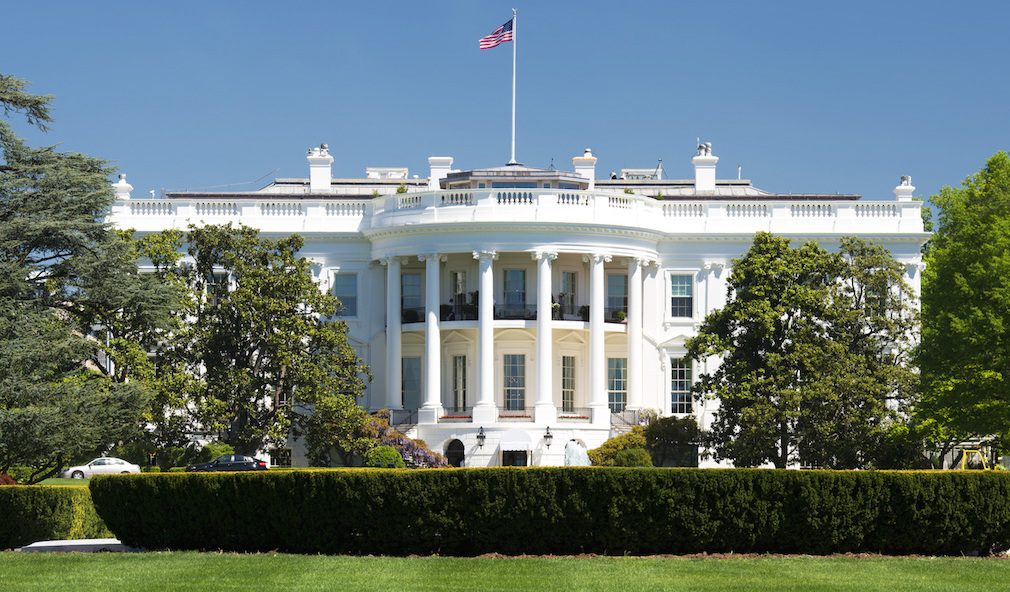The next presidential election is still more than three years away, but President Donald Trump has his first official challenger, as Rep. John Delaney, D-Maryland, announced Friday that he is running for president in 2020.
Delaney was elected to the House of Representatives in 2012, and began serving in the House in 2013. Delaney is a member of House Financial Services Committee and serves on the Subcommittee on Housing and Insurance.
During his time in the House, Delaney has spoken out about housing finance reform, going so far as to introduce legislation in 2014 that would have broken up Fannie Mae and Freddie Mac.
Delaney partnered with Reps. John Carney, D-Delaware, and Jim Himes, D-Connecticut, on a proposal that called for the use of private sector market forces to price risk while providing the security of a government guarantee behind the program.
“Under our plan the holders of mortgage-backed securities would absorb losses of up to 5% of their value,” Delany said in 2014. “The remaining 95% would be covered by insurance, which would be provided jointly by the government and the private sector.”
Delaney also said that the government eventually needs to shrink its share of the mortgage business significantly.
“Over time the government needs to get out of the mortgage finance market that it has long dominated,” Delany said in 2014. “But it must do so with care, to ensure that creditworthy American households have access to the affordable housing loans they need. (Our plan) combines a gradual transition to private finance in the housing market with an immediate end to the government’s counterproductive role in setting the price of mortgage finance.”
The plan stalled out in Congress, but now Delaney has his eyes on a much bigger job in Washington, and he’s doing so without a net, so to speak.
Delaney penned a piece for the Washington Post (which is also posted on his newly launched presidential campaign website) that lays out his reasons for running and says that he will not be seeking re-election in the House. Basically, he’s all in on the presidential race.
“To do this work with the commitment it deserves, I will not be running for reelection to the House of Representatives,” Delaney writes. “No games, no cat-and-mouse, no backup plan at the 11th hour if a focus group goes badly.”
Delaney writes that his campaign will be built on “going beyond party and partisanship” to find truly bipartisan solutions to the country’s issues.
His manifesto doesn’t lay out any specifics about what his campaign will seek – in housing finance or in any other area – but Delaney does lay out his vision for what his campaign will be about.
“The American people are far greater than the sum of our political parties. It is time for us to rise above our broken politics and renew the spirit that enabled us to achieve the seemingly impossible. This is why I am running for the Democratic nomination for President of the United States,” Delaney writes.
“Our government is hamstrung by excessive partisanship. We are letting critical opportunities to improve the country pass us by. And we are not even talking about the most important thing: the future,” Delaney continues.
“The victims of this leadership failure are the good people we are sworn to serve, and we are leaving our country ill-prepared for dramatic changes ahead. The current administration is making us less prosperous and less secure,” Delaney adds. “I’m running because I have an original approach to governing and economic policy that can put us on a different course.”
According to Delaney, his approach will be to focus on the future and taking the steps necessary to get the country where it needs to go.
“To do this, we need new infrastructure, which can be paid for using my bipartisan approach to infrastructure and international tax reform. We need to be smarter, fueled by more investment in science, education and research. We need new ideas on the future of jobs and work, one where we build a stronger and more vibrant middle class,” Delaney writes.
“We need to encourage a more just and inclusive form of capitalism and reduce barriers to small-business formation, start-ups, job creation, investment and growth,” Delaney continues. “We need to strengthen our safety-net programs and create a new social contract. We need to reform the systems of education, health care and immigration, and encourage more volunteerism, impact investing and public service. And we need to take affirmative steps to reduce our security, fiscal and climate risks.”
Delaney says that he acknowledges the recent failings of the Democratic Party and want to blaze a new trail.
“I am optimistic about our future. A future where responsible businesses work with our government to lead the world not only in growth and innovation but also in positive societal change,” Delaney writes.
“My approach goes beyond party and partisanship; I am first and foremost an American. I believe in a common national identity. I love our ambition, our values, what we represent to the world and our ability to use our greatness for a good and noble purpose,” Delaney concludes. “It is my love of country that compels me to behave differently in politics – work to do big things, seek solutions and compromise, respect the privilege of public service and be optimistic about the world.”






